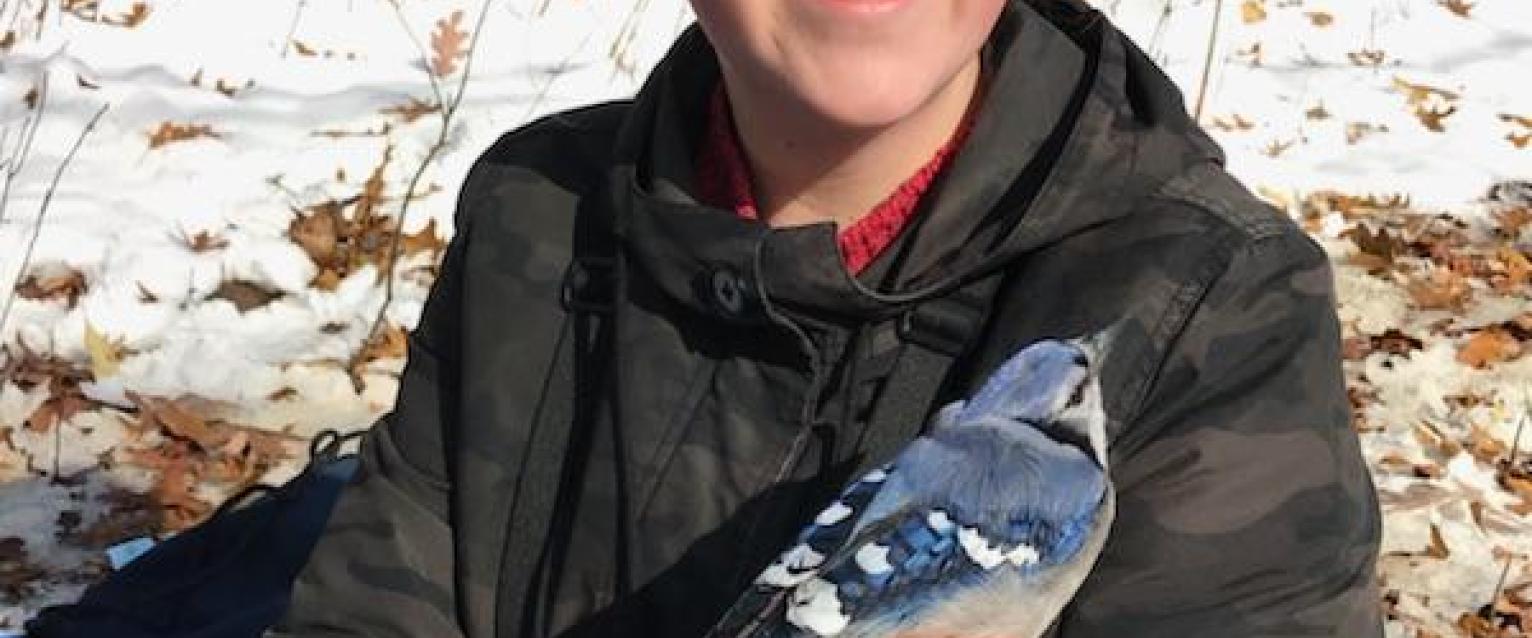Bronco Spotlight: Eliza Foli

Bachelor of Science in biology, 2019
Environmental Educator at the Minnesota Valley National Wildlife Refuge
I work on a team of four to lead engaging environmental education lessons for elementary students grades K-5 from the community surrounding the Refuge. As educators, we work at two visitors centers for the refuge, as well as various trails on refuge land, and the two local elementary schools we are partnered with. We have the opportunity to revise the current lesson curriculum in the education program, create social media content for the refuge, plan events, and complete a project that will add to the education program here (I am illustrating and writing a children's book which will be published and printed for our use). The Wildlife Refuge is part of the US Fish and Wildlife Service, and therefore I am learning first hand what it looks like to work for the US Fish and Wildlife Service as well.
What is the most rewarding and the most challenging part of your job?
The majority of my job is spent with students, teaching our lessons hands on, which is both the most challenging and rewarding part of being an educator. Being able to work with students from such varied ages has made me a much more observant, inclusive, and effective teacher. Children tend to be very curious about nature, and their ability to appreciate even the tiniest details about the natural world is inspiring.
What experiences impacted the choice of your career path?
My experiences working in the research labs of Dr. Sharon Gill and Dr. Maarten Vonhof at WMU were pivotal in my career as a biology student. After getting involved with their research my sophomore year and having my eyes opened to the world of possibilities that biology provides, I put my all into my research and curiosity, which led to my job positions at WMU as an undergraduate teaching assistant and learning assistant for biology courses, as well as my field work outside with birds and leadership positions in the Western Michigan Biology Club. What impacted me most was the information and skills I was able to learn from professors and peers by keeping an open mind and actively seeking out opportunities to try new things within biology.
What advice do you have for others pursuing a career similar to yours?
Get involved in as many internships or research positions you possibly can. Explore teaching - Students Success Services at WMU is a wonderful way to get involved in Biology courses at the university and practice these skills, as well as develop relationships with faculty members in the Biology department. When you find something that makes you curious, work harder at that and remember that if you are doing something, you should be giving it your all.

